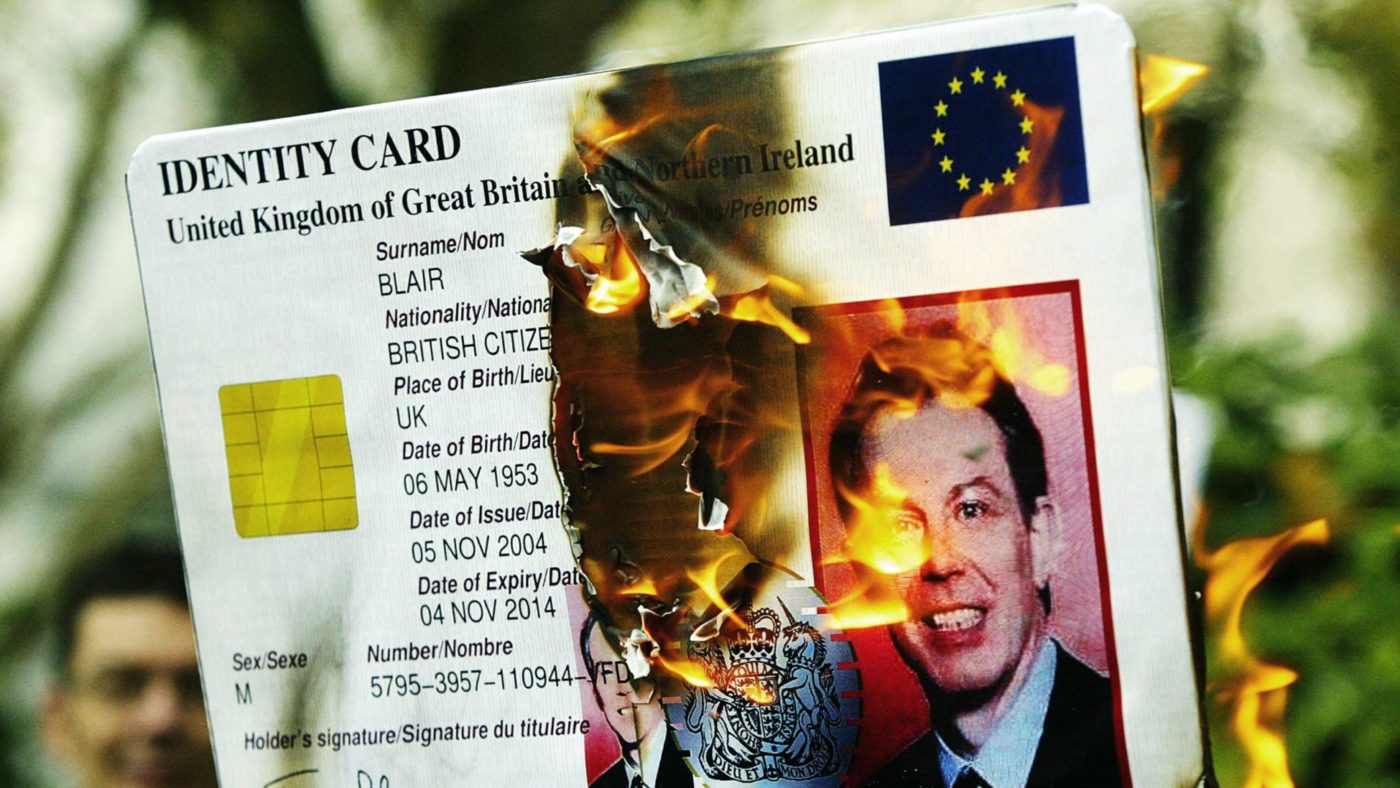There is a certain stripe of Briton who, when the phrase “ID cards” is mentioned, sits bolt upright in his armchair, moustache bristling, eyes aflame, and lets you have it. “I,” he proclaims, “am a free-born Englishman, warmed by the flame of liberty. My father didn’t defeat Hitler only for his son to be asked to show his papers on the streets of Billericay.” With that, he will harrumph, snap his Daily Telegraph, subside once more into the depths of his chair, and finish the article on Meghan’s fashionable boobs.
The arguments against ID cards are well-worn and have their roots in a very British (and noble) take on civil liberties – the right of the individual to privacy, freedom from state intrusion, fear of a slippery slope towards a Big Brother society. Critics insist, as Peter Lilley famously put it, that ID cards have long been “a solution looking for problems”. They have a point. Various governments since the Second World War have attempted to introduce a mandatory scheme, promising it would help solve social issues such as benefit fraud, illegal immigration, and underage drinking, smoking and gambling.
After 9/11, Tony Blair saw ID cards as a route to tackling terrorism. The concern was always that governments with authoritarian tendencies – and New Labour certainly had those – would be given an inch only to take a mile. This week the idea of such a scheme has been raised yet again, with former home secretaries Charles Clarke, Alan Johnson and Ken Clarke arguing that individual ID cards would prevent situations such as the Windrush scandal.
I also think there is a wider case to be made in their favour – one that wasn’t possible a decade or so ago. The digital revolution has transformed the terms of debate, upended the settled wisdom and redesigned the field of play. What once looked invasive and overweening, now, from a modern vantage point, looks merely convenient and useful, and perhaps obvious.
Our philosophical conservatism is holding Britain back. Perhaps it’s inevitable that an Eastern European country with significant historical experience of state interference would lead the way in the field. Estonia is always mentioned at this point, and rightly so. For if the UK wants to understand the potential of an ID card in the 21 st century – perhaps better retitled as a Citizen’s Card, or a Data Card – it should look closely at Estonia’s astonishing achievement.
After becoming independent in 1991, the country’s leaders decided the country needed an angle to stand out from the crowd. Smartly, they alighted on govtech as a way of establishing this distinct identity. Today, e-Estonia, the government’s tech arm, says that 99 per cent of public services are available to citizens in digital form – only marriages, divorces and real-estate transactions require one to leave the house.
There has been online voting for parliamentary elections since 2007. Tax returns are done online, with most of the data pre-completed due to links between the tax office and local
banks. Almost all patients have a digital health record, to which doctors have quick and easy access: in emergencies, they can use a person’s ID code to find out potentially life-saving information such as blood type, allergies, recent treatments, and on-going medication.
More than 95 per cent of prescriptions are issued digitally. In short, the Estonian ID Card can be used for voting, electronic banking, signing contracts, the use of public transport and encrypting email. The card’s chip also stores details of the user’s name, gender, and their national identification number.
In every other aspect of our lives we Brits have grown used to the benefits of digitisation – enhanced speed, choice and access to goods, information and expertise. Only in our dealings with government do we seem willing to tolerate a snail’s-pace approach to technological adaptation. Indeed, when you look around the globe Britain seems unusually slow off the mark, especially given its self-proclaimed native genius for innovation.
We are currently eating the dust of countries such as Denmark, Singapore and Holland. We should also consider how our relationship with our personal information has been revolutionised. The recent furore over Facebook and its storage and use of our data tells you how far we’ve come in a relatively short period.
We are, most of us, and within limits that we are still determining, content these days to share much of our data with private companies as payment in kind for access to their services. Anyone under the age of, say, 25, has only ever lived in a world where their data is freely given and widely shared.
Not many in that generation would choose to return to an era of privacy if it meant giving up the treasures of their online existence. It seems faintly ridiculous that in such a climate we are
reluctant to allow the state to jump on board. The storage of our personal info on a government database would allow greater convenience in accessing public services, the removal of an enormous and time-consuming layer of human bureaucracy, the tackling of voter fraud, the ability to more easily monitor illegal immigration, and the improvement of a hundred other ways in which we interact with government.
Would there be bumps and leaks and scandals along the way? Of course. But we have them anyway. As a spokeswoman for e-Estonia puts it, “when you introduce an ID card, you get a lot of people asking, ‘Why do I need that?’ But then you add all of these services, and you can purchase a car from your living room, or vote from your living room or, when it’s like minus 40 outside and you have a newborn baby, you probably don’t want to go to the family office to name her: you do that online”.
It not only makes sense, there’s an inevitability to it all. And it’s not as if our political leaders are coming up with any better ideas.


